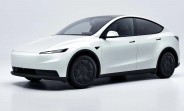Tesla's Autopilot technology achieves new safety heights in Q1 2024
Tesla has just dropped its latest Vehicle Safety Report, and the numbers are turning heads. The report, covering the first quarter of 2024, reveals a significant leap in the safety performance of its Autopilot technology.
According to the report, Tesla vehicles equipped with Autopilot cruised an average of 7.63 million miles (12.2 million km) before encountering an accident. This is a staggering 47% improvement compared to the same period last year, and a testament to the evolving capabilities of Tesla's autonomous driving tech. This distance also dwarfs the US national average for all cars, a paltry 0.67 million miles (just over one million km) per accident.
But before we start planning cross-country road trips with our hands off the wheel, it's important to remember that Tesla's figures aren't the whole story. The data includes all accidents, regardless of whether Autopilot was the culprit. In fact, over a third of Autopilot-related crashes happen when a Tesla is rear-ended by another vehicle.

Interestingly, the report also reveals that Teslas without Autopilot engaged are experiencing more frequent accidents. The average distance between accidents for non-Autopilot Teslas dipped to 0.955 million miles (1.53 million km), a 13% drop compared to Q1 2023. The reason for this decline remains unclear, but it's a trend that Tesla will undoubtedly be keen to reverse.
While Tesla's latest safety report paints a promising picture for the future of Autopilot, it's crucial to interpret the data with a critical eye. The report doesn't allow for a direct comparison between Autopilot and non-Autopilot driving, as the driving conditions in each scenario can vary wildly. However, the fact that the gap between the two is widening suggests that Autopilot is becoming increasingly adept at handling the complexities of the road.
As Tesla continues to refine its Autopilot technology, it's clear that the company is committed to making its vehicles as safe as possible. While the road to full autonomy is still under construction, Tesla's latest safety report shows that the company is making significant strides in the right direction.
Here are the detailed Autopilot safety results published by Tesla:

Reader comments
- Fearghast
- 3D9
As a guy, who is following Tesla FSD quite closely and read about pretty much every update, I can clearly call BS on working flawlessly.
- The Truth
- k2m
You are wrong. Allow me to set you free. There are already videos of people who have exported their Tesla to countries where FSD was not trained on and using GPS spoofing were able to trick their car into thinking it was in the US. They turned ...
- anyone
- 32B
yes, it looks like that's the case. the source link at the bottom of the article leads to main tesla page. so, a bucket of salt should be kept near by. also, there are other companies that are aleady using self driving cars as taxis in us, with ...





Facebook
Twitter
Instagram
RSS
Settings
Log in I forgot my password Sign up